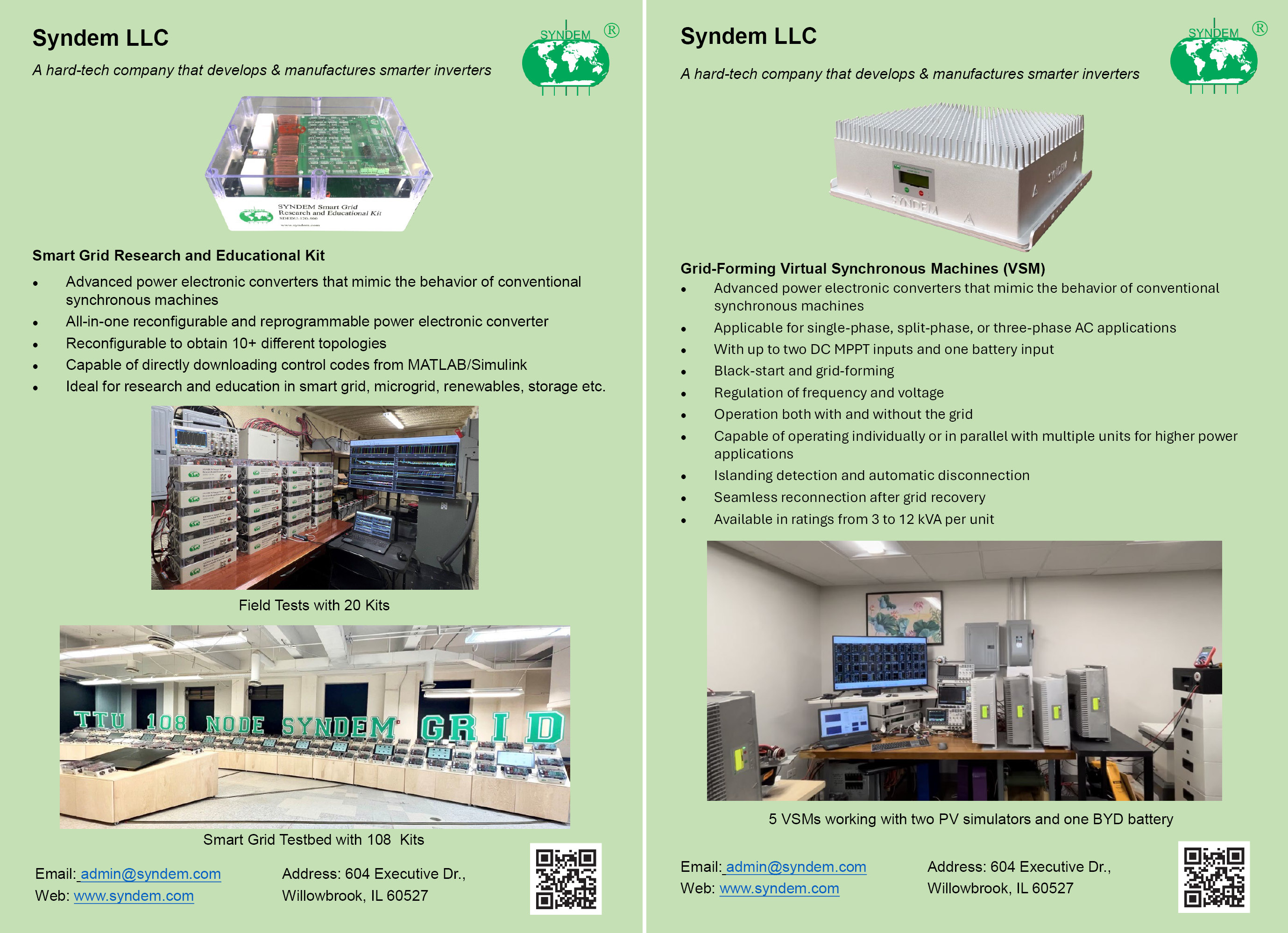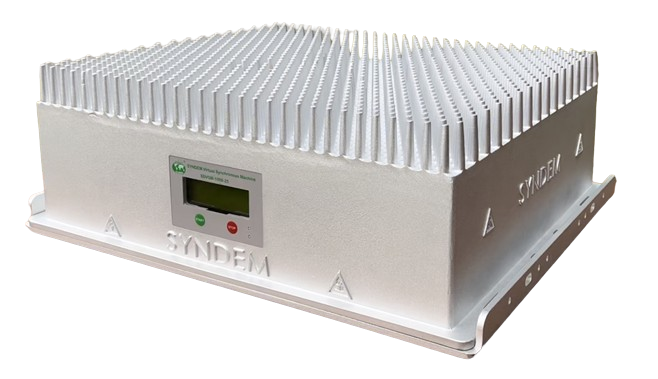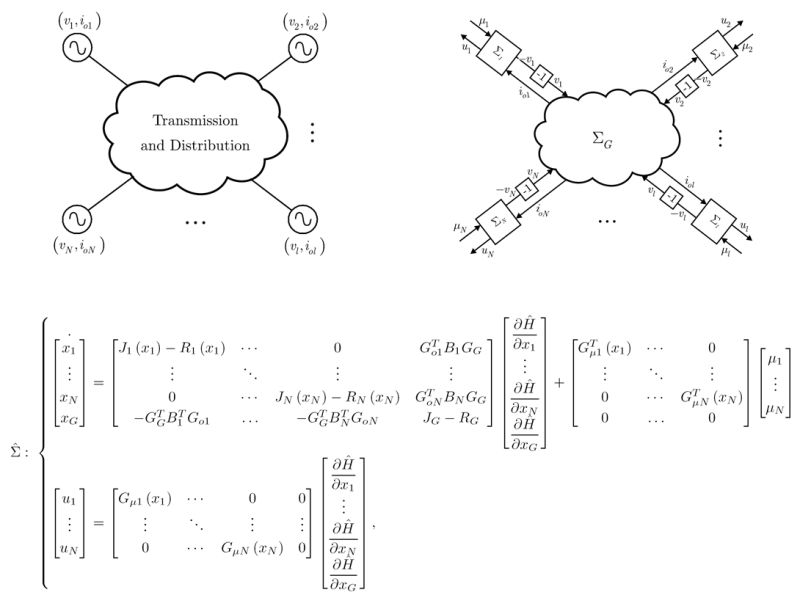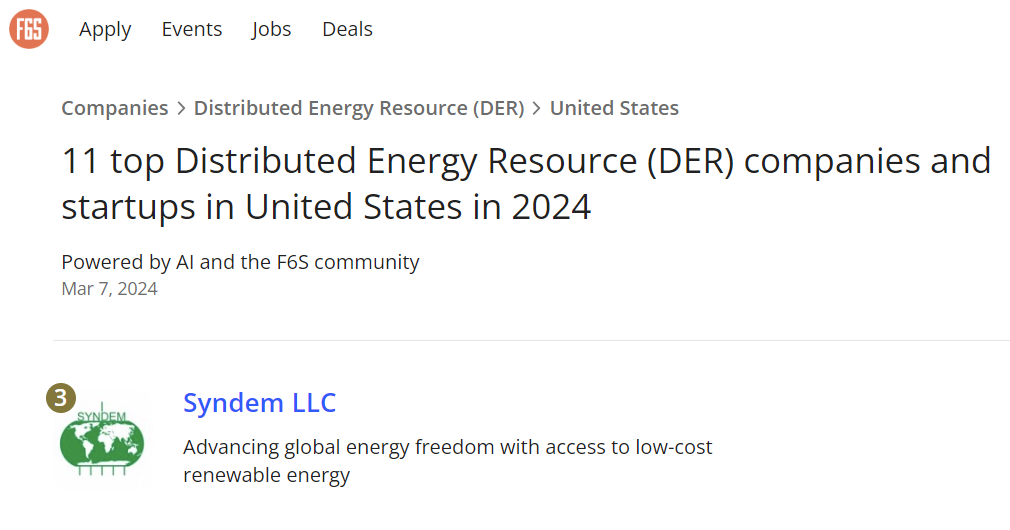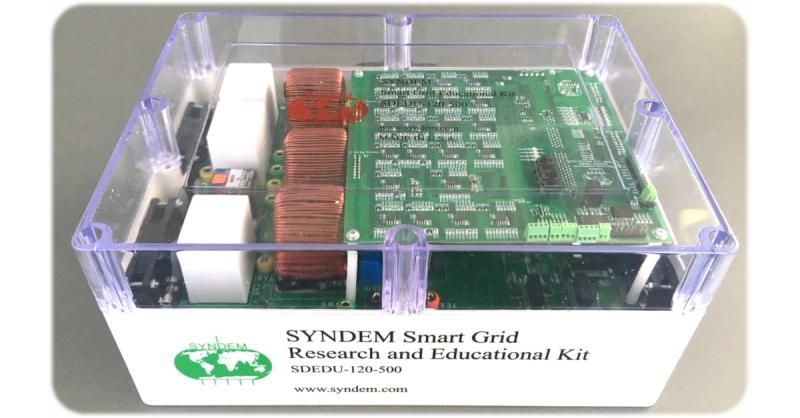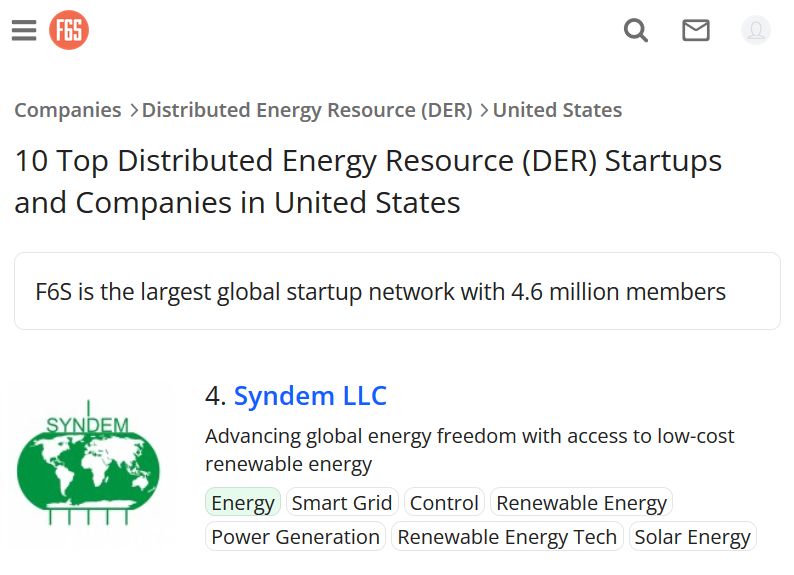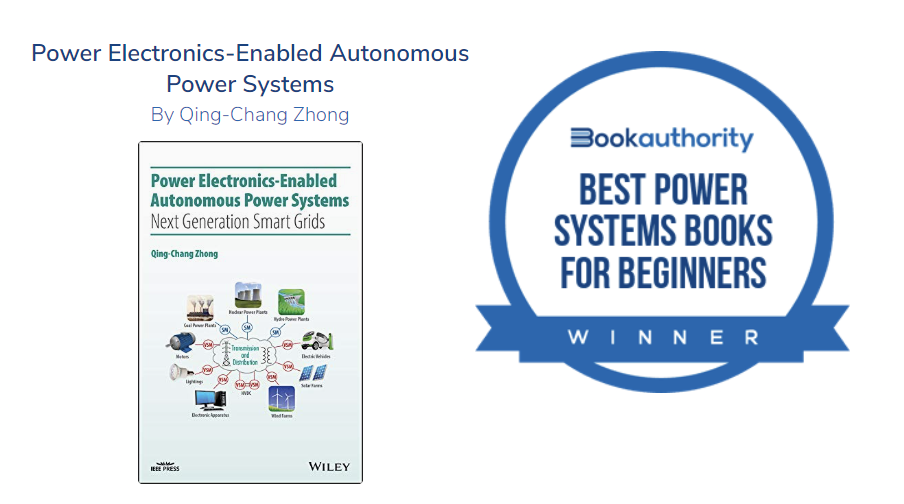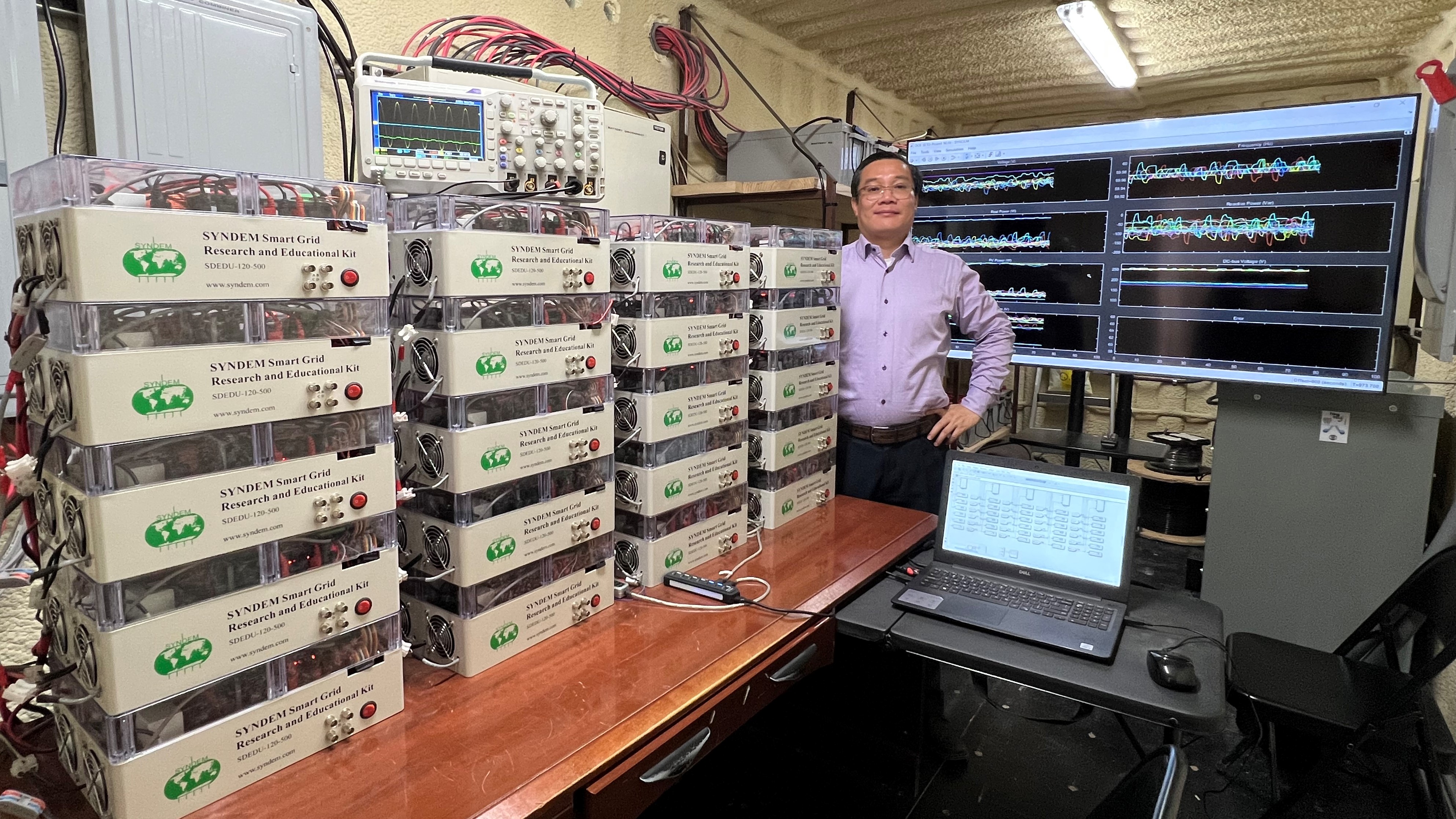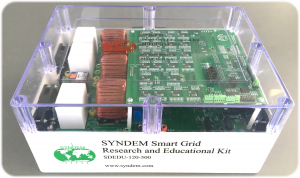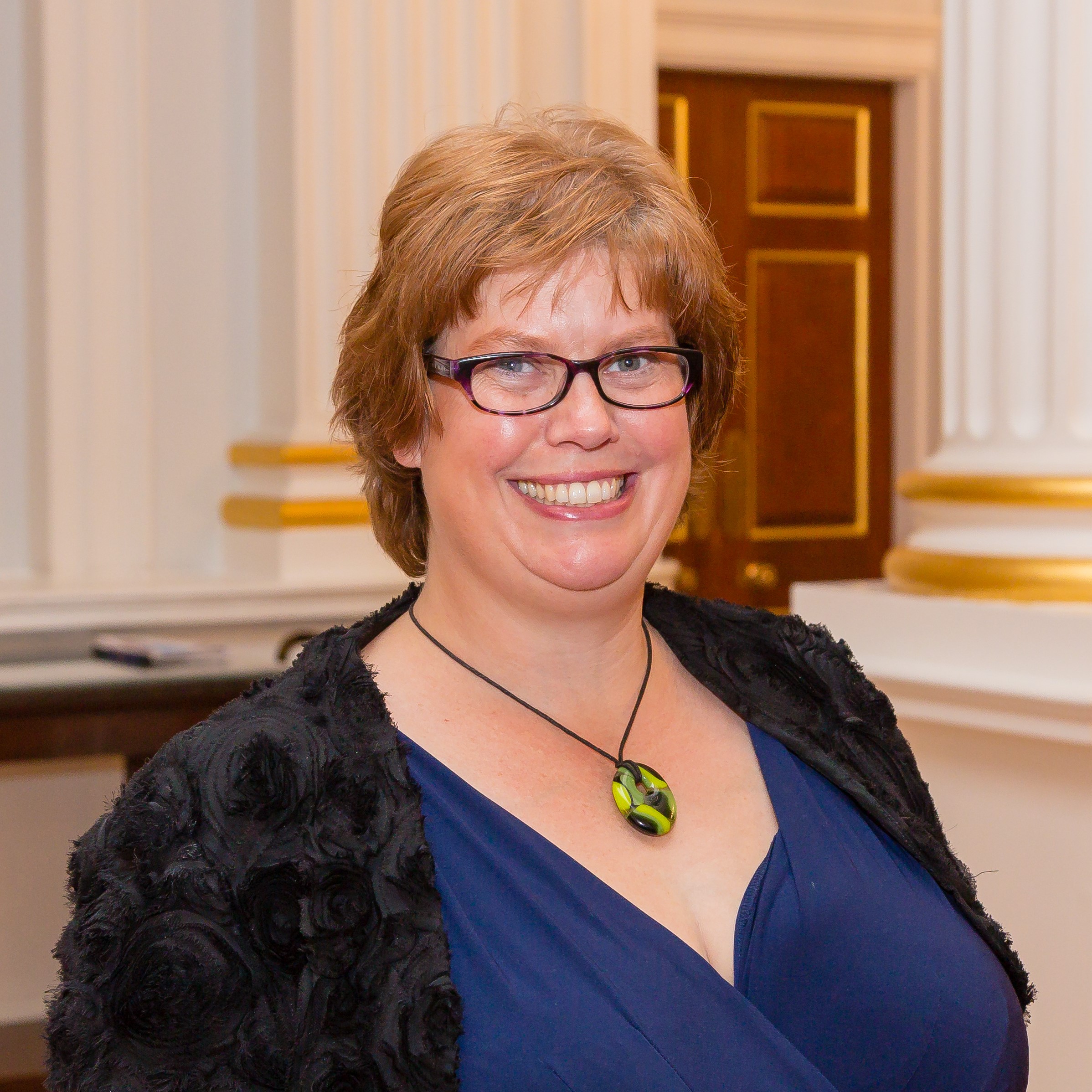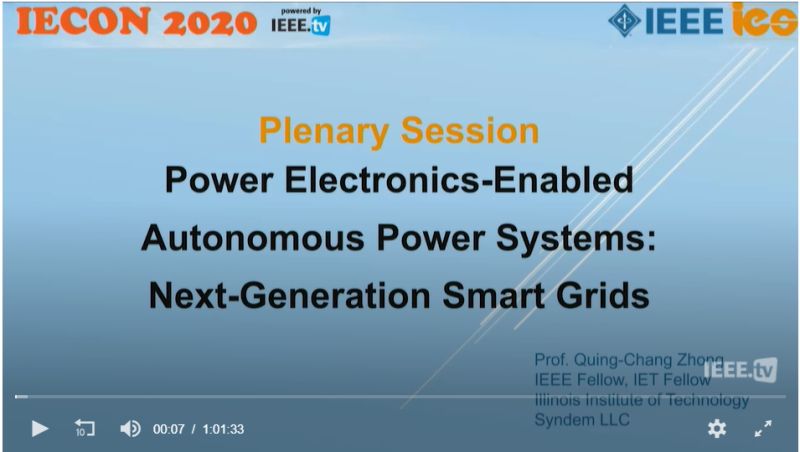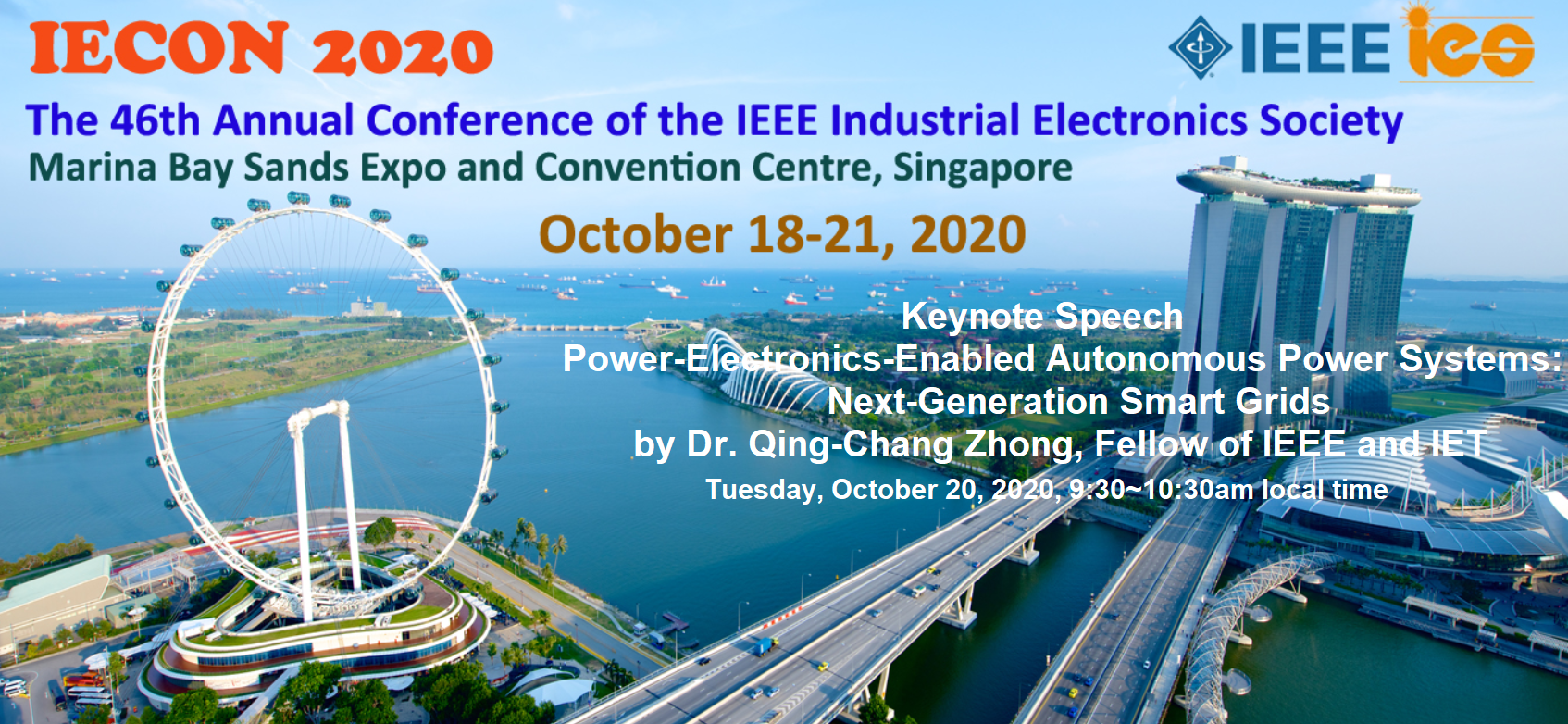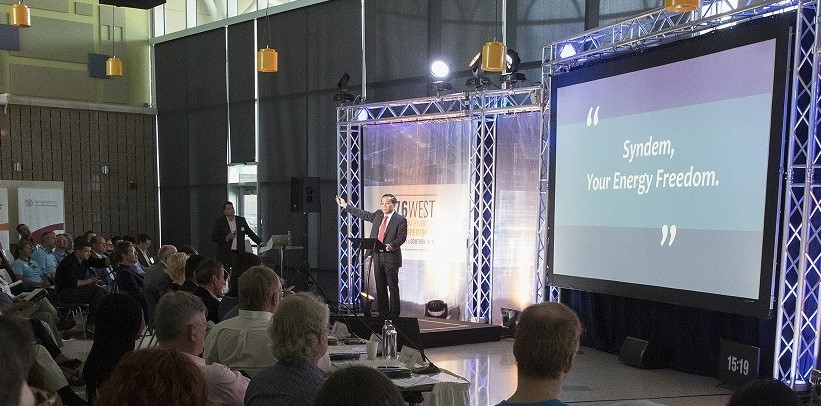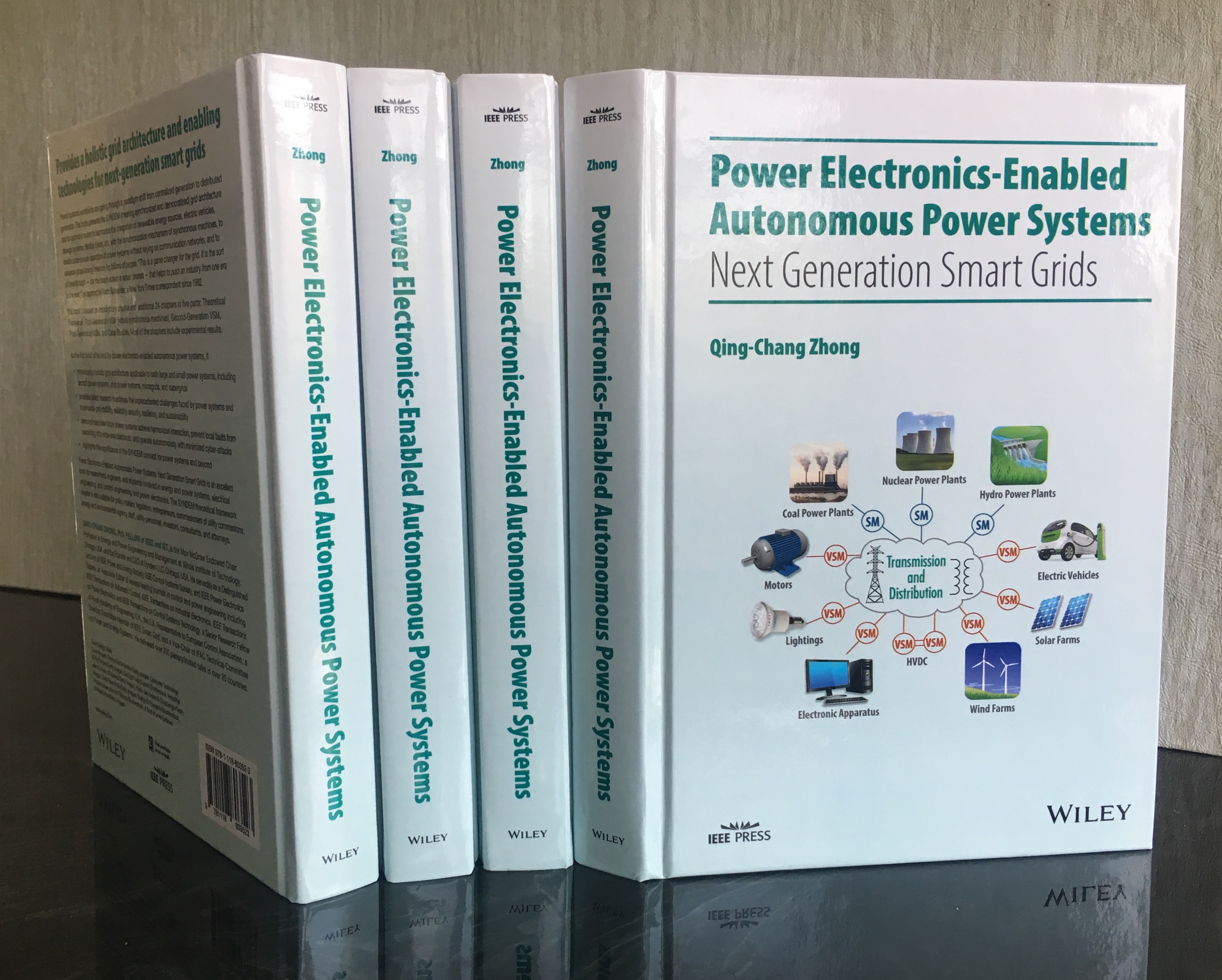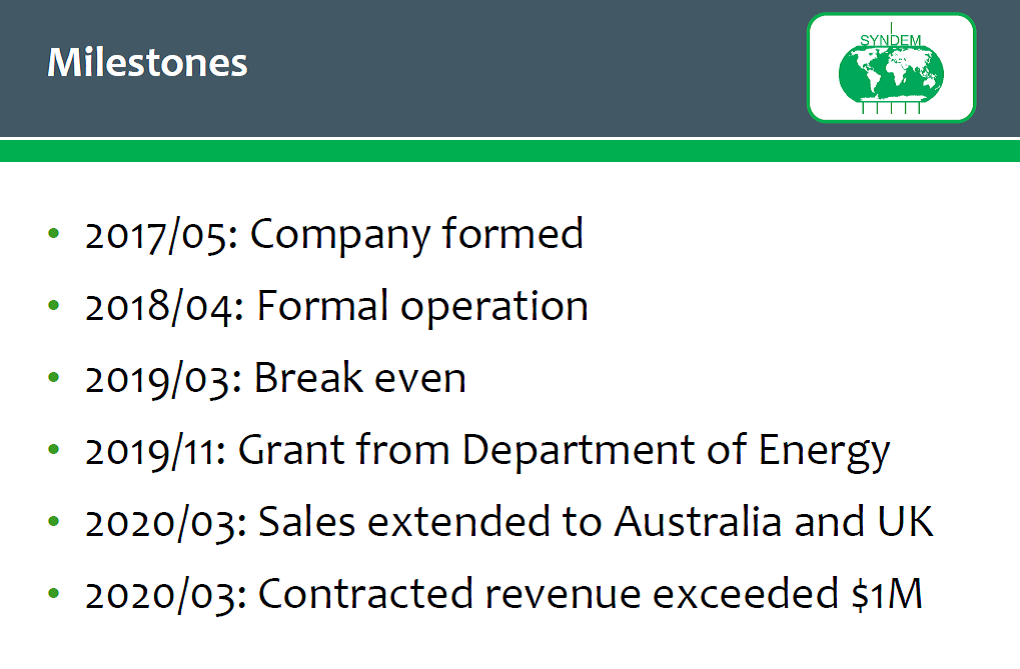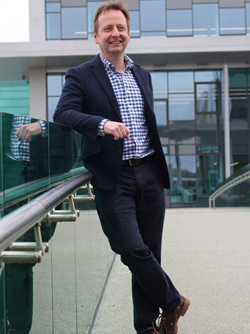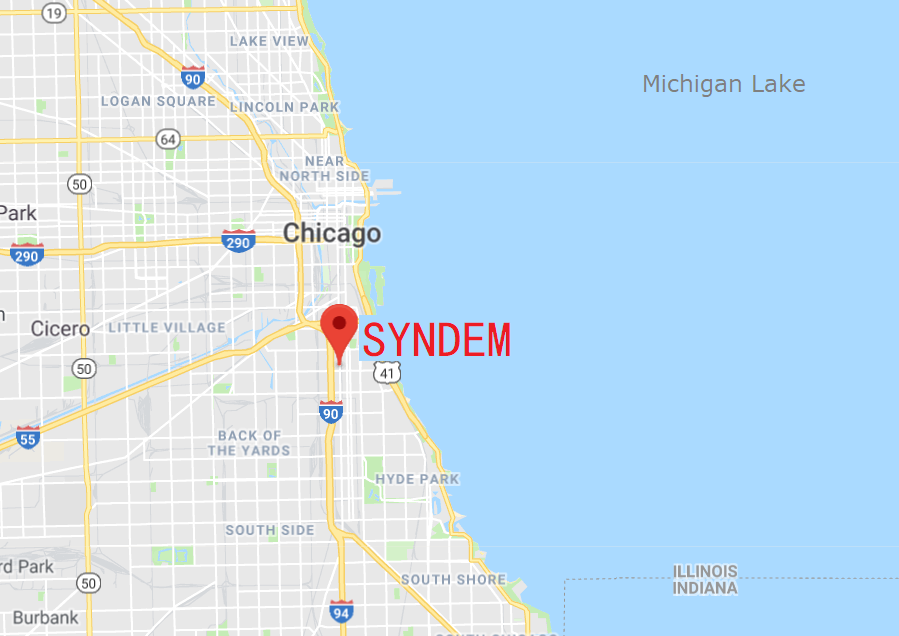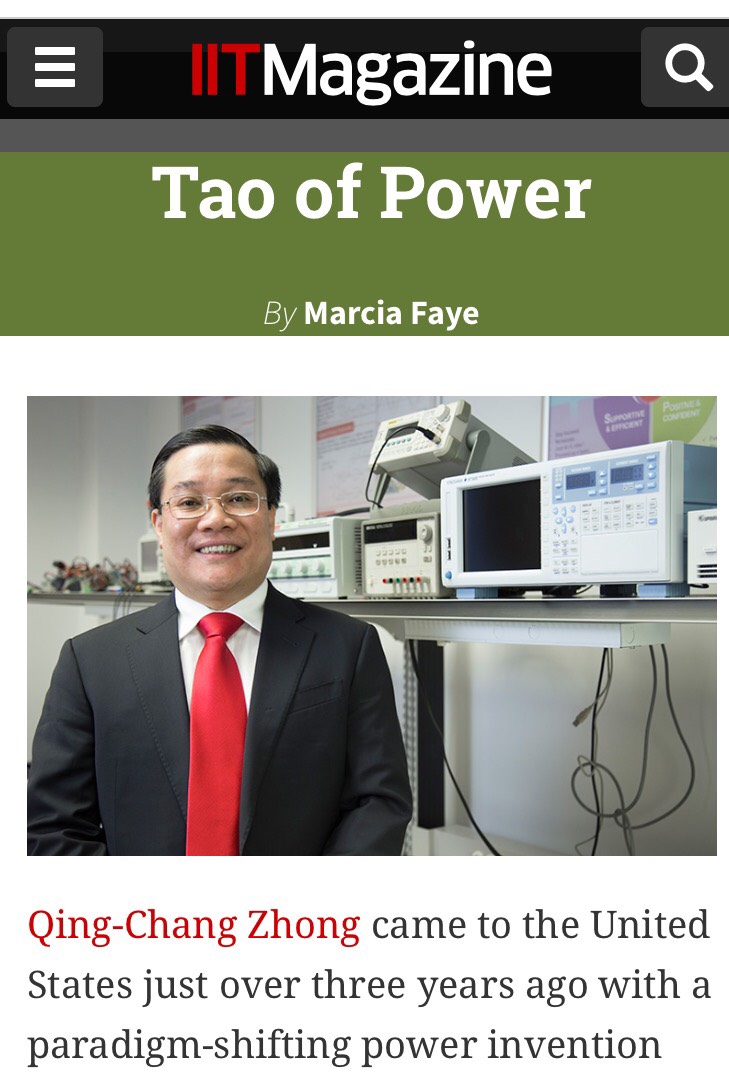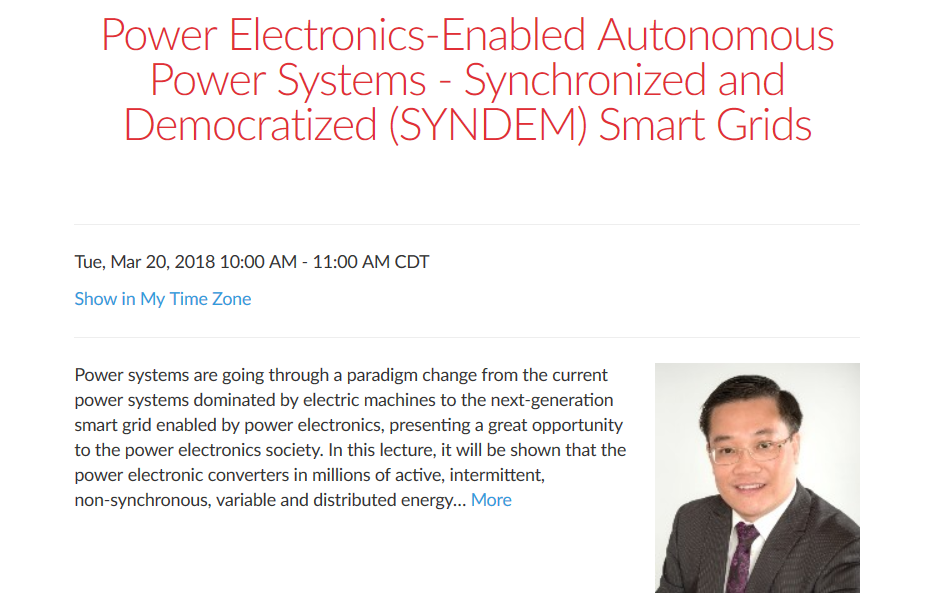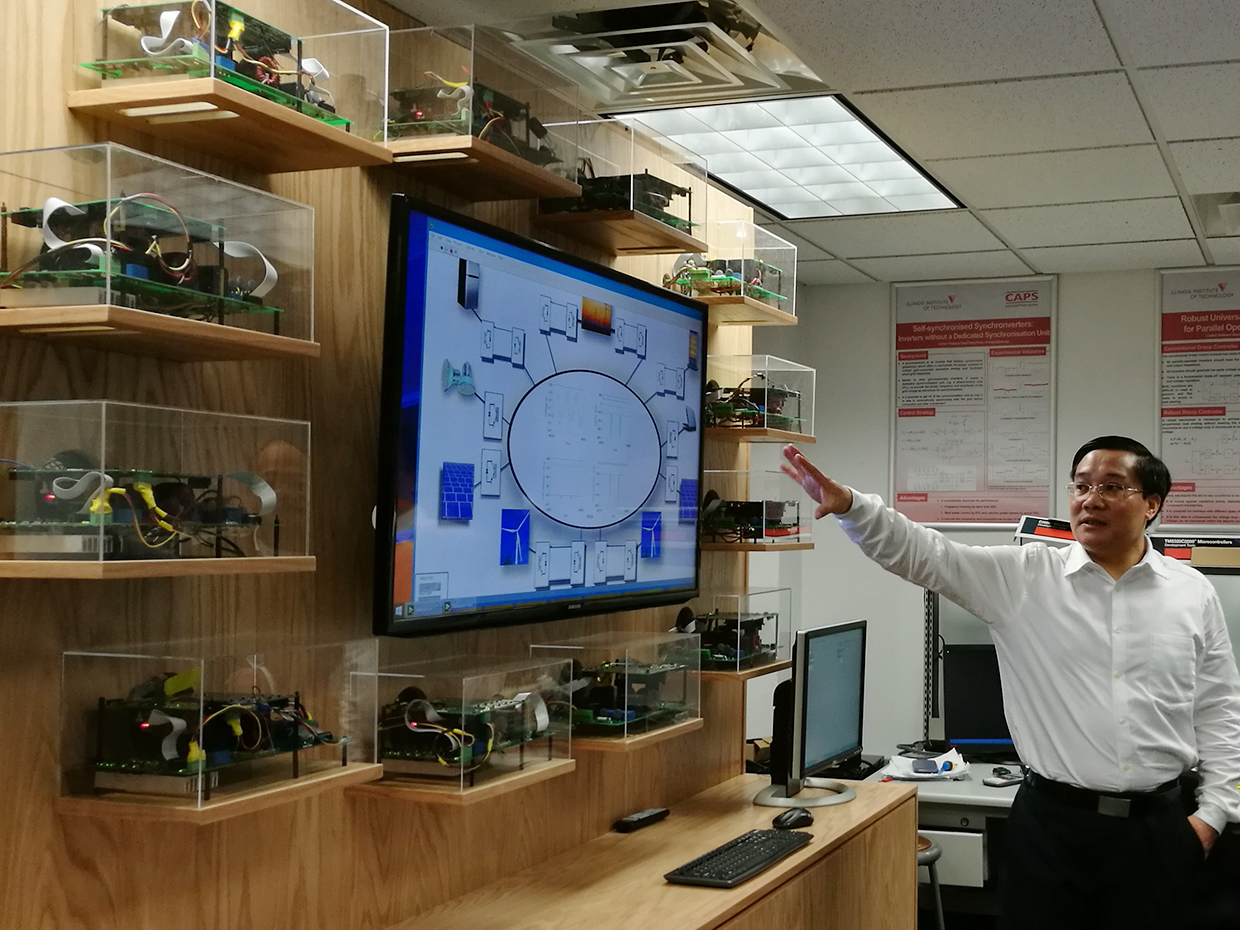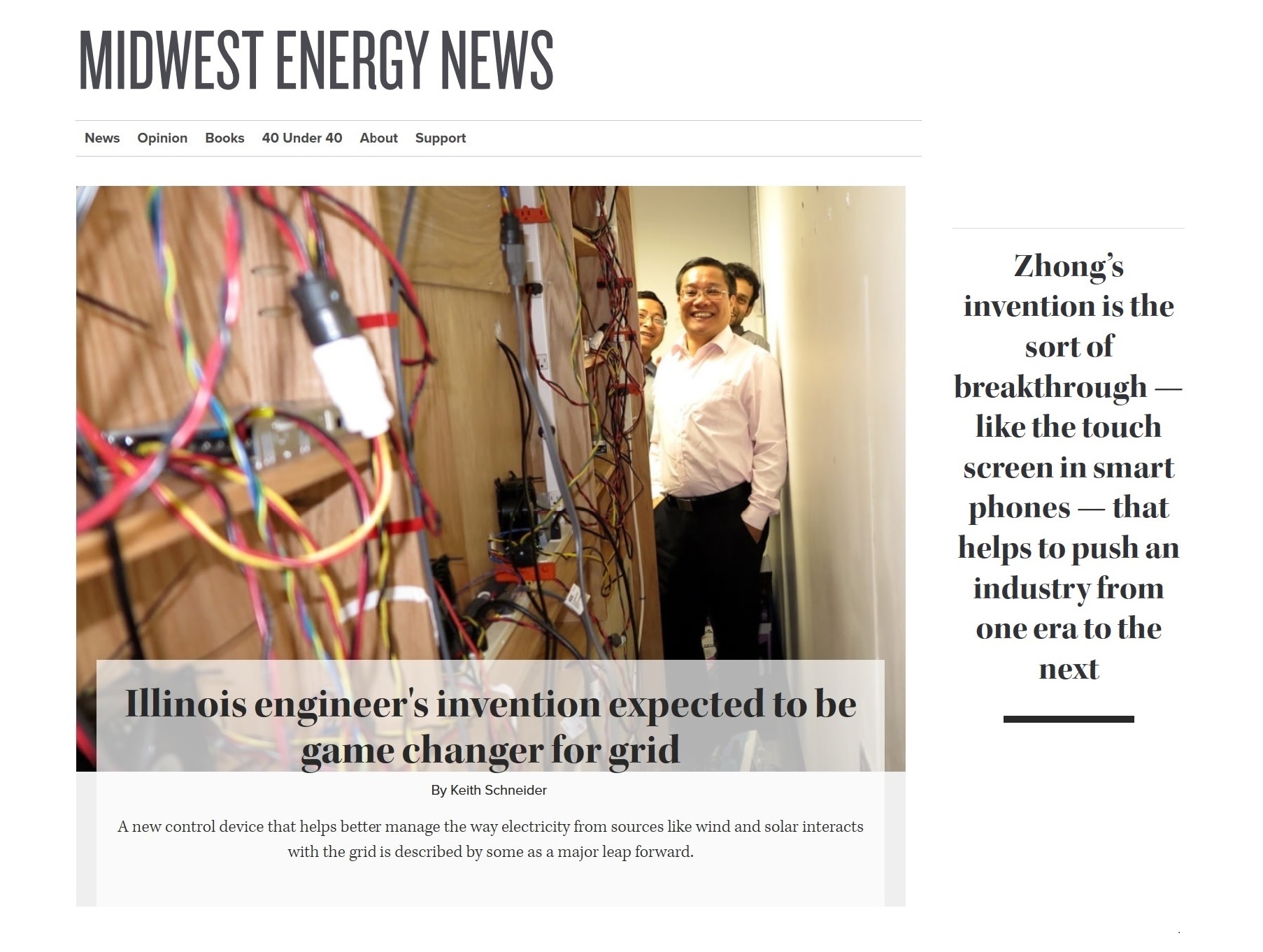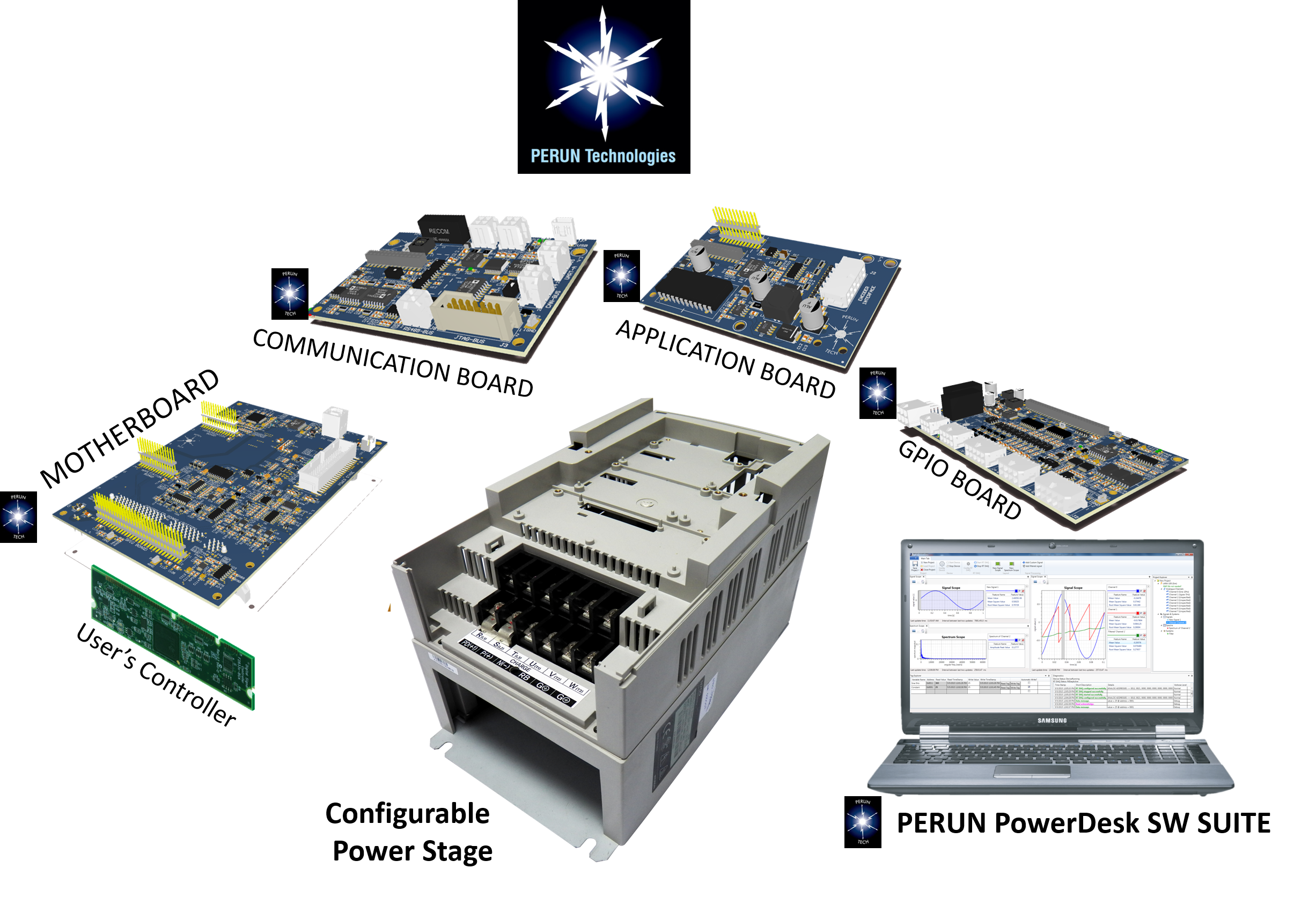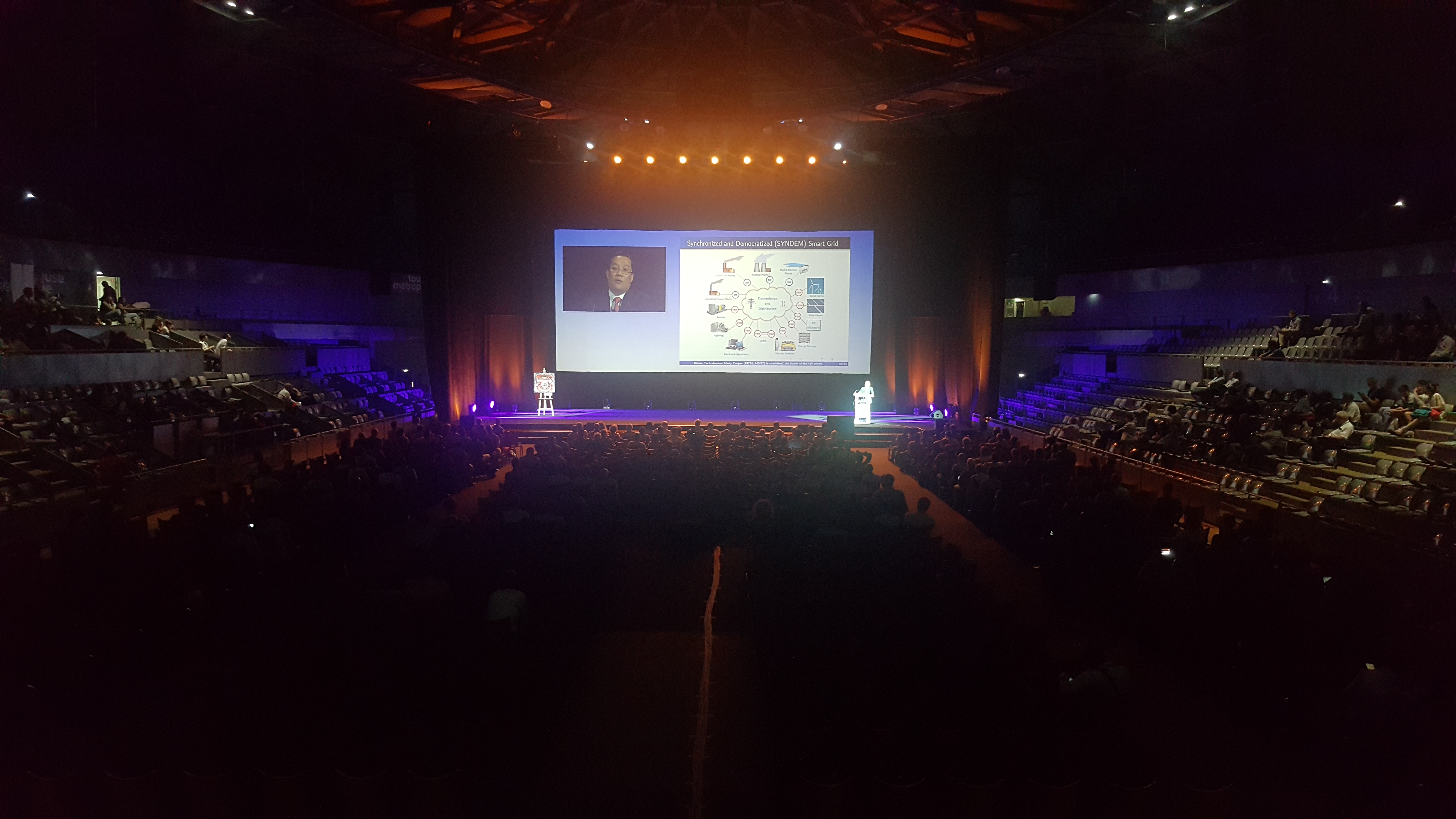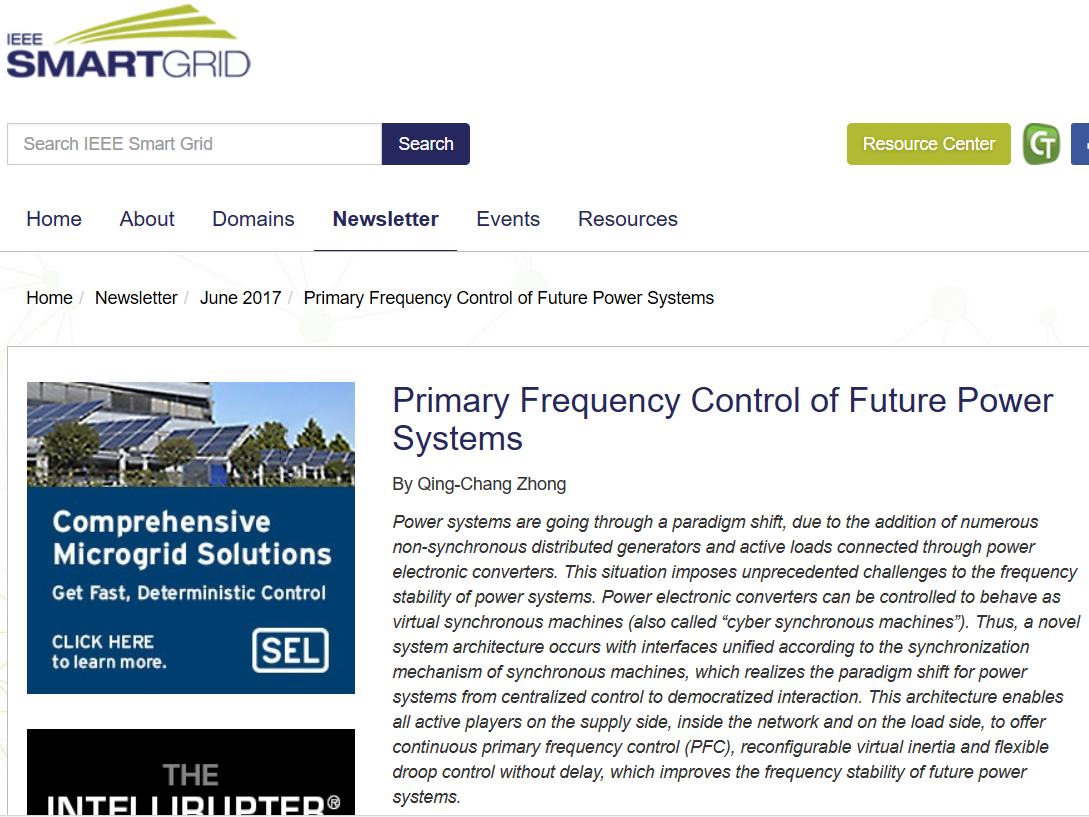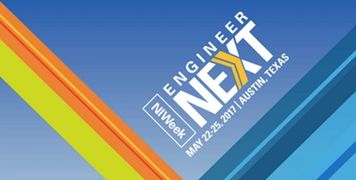News
StartUs Insights Features SYNDEM as a Top 3 Power Electronics Startups Out Of 123 In Grid Modernization
Innovation intelligence firm StartUs Insights, with instant access to 4.7M+ startups, features SYNDEM as a Top 3 Power Electronics Startups Out Of 123 In Grid Modernization.
SYNDEM Exhibits at IECON 2024 in Chicago
SYNDEM exhibits at IECON 2024 in Chicago, November 3-6, 2024, showcasing our flagship products (Smart Grid Research and Educational Kits and Grid-forming Virtual Synchronous Machines). Venue: Sheraton Grand Chicago, 301 E North Water St., Chicago, IL 60611.
SYNDEM Started Shipping its Flagship Product Virtual Synchronous Machines
SYNDEM has started shipping its flagship product Virtual Synchronous Machines, which are power electronic converters that behave like, and in some cases, surpass conventional synchronous machines. They have up to two DC inputs equipped with MPPT and one battery connector, and can be configured for single-phase, split-phase, or three-phase AC applications. They can work as a PV inverter with built-in MPPT (with or without a battery storage), a PV-storage converter, or a storage converter. The products currently on offer have capacities in the range of 3~12kVA. Multiple units can be directly stacked up for higher-power applications.
Main features:
- Capable of black-start and forming a grid
- Capable of regulating frequency and voltage
- Capable of operation in islanded and grid-tied modes
- Capable of operation individually or in parallel with multiple units
- Capable of detecting the loss of the grid and disconnecting seamlessly from the grid when the grid is lost
- Capable of re-synchronizing with the grid when the grid recovers and re-connecting to the grid seamlessly
- Built-in MPPT
All the above-mentioned functions are achieved autonomously without relying on communication through additional infrastructure or human intervention. If needed, a built-in RS485 communication interface is available for SCADA/monitoring/control.
Compact Mathematical Model and Control Framework Released for Future Power Systems
We have recently released a compact mathematical model and control framework for power systems with any number of power electronic converters connected through any passive transmission and distribution network. This is an important milestone towards unifying and harmonizing future power systems dominated by distributed energy resources with the Synchronized and Democratized (SYNDEM) grid architecture and the Virtual Synchronous Machines (VSM) technologies.
See https://lnkd.in/gn6yNXZT for more details.
SYNDEM RANKED NO. 3 ON THE LIST OF top Distributed Energy Resource (DER) companies and startups in United States in 2024
Syndem has been ranked No. 3 on the list of Distributed Energy Resource (DER) companies and startups in United States in 2024 by F6S, the largest global startup network with 5.1 million members.
Texas Tech Unleashes World-Class Facility to Advance Research, Education, and Workforce Development for Future Power Systems
Dr. Beibei Ren, Larry and Nancy McVay Endowed Professor in Engineering at Texas Tech University, has built up a reconfigurable and reprogrammable smart grid testbed with 108 SYNDEM Smart Grid Research and Educational Kits as the backbone.
Main features:
- Organized in 12 microgrids and a substation
- Reconfigurable at the device level and the systems level
- Reprogrammable and open-source
- Auto-code generation
- Suitable for validation of algorithms at all levels, such as control of power electronic converters, integration of distributed energy resources, coordination and operation of multiple power electronic converters, grid management, communication and cybersecurity
Click here for TTU's press release.
SYNDEM EXPANDS ITS CUSTOMER BASE TO 10 countries
SYNDEM has recently delivered orders to customers in France, Saudi Arabia, India, and Australia for its Smart Grid Research and Educational Kits, expanding its customer base to 10 countries.
The Kit is a reconfigurable, open-source, multifunctional power electronic converter with the capability of directly downloading codes from Matlab/Simulink. It can be reconfigured to obtain over 10 different power converter topologies and is ideal for educating graduate students and carrying out research and developments for power electronic projects. Its usage can considerably reduce the development cycles of power electronic systems and improve the efficiency of educating next-generation engineers in power electronics for renewable energy, smart grid, microgrids, motor drives, electric vehicles, energy storage systems etc.
While the world is transitioning to a carbon-free economy with the large-scale adoption of renewable energy, there is a significant increase of demand for workforce with profound theoretical knowledge and skillful hands-on experiences in control engineering and power electronics. The Kit is an ideal platform that will help accelerate the development of workforce to meet this ever-increasing demand.
SYNDEM receives patent approval for its unique rackless thermal-efficient modular design
SYNDEM's patent application on its unique rackless thermal-efficient modular design has been approved.
SYNDEM receives patent approval for its unique converter topology
SYNDEM's patent application on its unique converter topology with a ground fault detection unit that shares a common ground with DC and AC ports has been approved.
Syndem Ranked No. 4 on the list of 10 Top Distributed Energy Resource (DER) Startups and Companies in United States in 2023
Syndem has been ranked No. 4 on the list of 10 Top Distributed Energy Resource (DER) Startups and Companies in United States in 2023 by F6S, the largest global startup network with 4.6 million members.
Syndem CEO's Book "Power Electronics-Enabled Autonomous Power Systems" made Top 5 on BookAuthority's list of Best Power Systems Books for Beginners
Power systems worldwide are going through a paradigm shift from centralized generation to distributed generation. This book presents the SYNDEM (i.e., synchronized and democratized) grid architecture and its technical routes to harmonize the integration of renewable energy sources, electric vehicles, storage systems, and flexible loads, with the synchronization mechanism of synchronous machines, to enable autonomous operation of power systems, and to promote energy freedom.
SYNDEM Joins a PowerAmerica-led Team Funded by NIST to Help Native American Communities Better Prepare for Future Pandemics
PowerAmerica, a member of Manufacturing USA launched by the U.S. Department of Energy in 2014 as the Next Generation Power Electronics National Manufacturing Innovation Institute, has been awarded a $5 million cooperative agreement from the National Institute of Standards and Technology (NIST) to help Native American communities better prepare for future disasters and emergencies, such as the COVID-19 pandemic.
The Institute will work closely with Navajo Technical University, Sandia National Lab in New Mexico, and other Native colleges to engage with these communities.
Syndem is proud to be part of the team led by PowerAmerica.
Click here for PowerAmerica's press release.
Syndem Completes the Field Tests of Twenty Grid-Forming Inverters Equipped with its Virtual Synchronous Machines Technologies
SYNDEM has successfully completed the field tests of 20 grid-forming inverters equipped with its Virtual Synchronous Machines (VSM) technologies in Lubbock, Texas, partially funded by the Department of Energy.
The 20 inverters are connected together to form a microgrid, which can be operated with the public grid or on its own without the public grid. Fifteen of them are connected to solar panels in the field and seven of them are connected to batteries so two of the inverters are connected to both solar panels and batteries. The inverters can black-start by itself, synchronize with each other, connect together to form a grid, regulate the voltage and the frequency, detect the presence of the public grid and, if present, synchronize with the grid and connect to the grid, detect the loss of the public grid and, if lost, disconnect from the public grid, all autonomously without relying on communication networks or human intervention.
The successful completion of the field tests has demonstrated the functions of Virtual Synchronous Machines and their important roles in enabling the power system paradigm shift from centralized generation to distributed generation, in advancing energy equity, access, and justice, and in developing a low-carbon economy.
Syndem Expands its Customer Base to Italy, Brazil, and Turkey
SYNDEM, a global pioneer in renewable energy and smart grid, announces that it has recently delivered orders to customers in Brazil, Italy, and Turkey for its Smart Grid Research and Educational Kits.
The Kit is a reconfigurable, open-source, multifunctional power electronic converter with the capability of directly downloading codes from Matlab/Simulink. It can be reconfigured to obtain over 10 different power converter topologies and is ideal for educating graduate students and carrying out research and developments for power electronic projects. Its usage can considerably reduce the development cycles of power electronic systems and improve the efficiency of educating next-generation engineers in power electronics for renewable energy, smart grid, microgrids, motor drives, electric vehicles, energy storage systems etc.
While the world is transitioning to a carbon-free economy with the large-scale adoption of renewable energy, there is a significant increase of demand for workforce with profound theoretical knowledge and skillful hands-on experiences in control engineering and power electronics. The Kit is an ideal platform that will help accelerate the development of workforce to meet this ever-increasing demand.
Kate Barnard, Former University Research Program Manager of Rolls-Royce, Joins Syndem as a Member of Board of Advisors
Kate Barnard, former University Research Program Manager of Rolls-Royce, has recently joined Syndem's Board of Advisors.
Kate is Founder & Director of two successful start-ups, WhatBox Consulting Ltd and Enjoy The Air Limited, along with Non-Executive Director for Eye Dream and on the Strategy Board of the IMechE, one of the largest Global Professional Engineering Institutions. Built on a foundation of over two decades as a manager in the engineering and technology group within Rolls-Royce Plc, she led one of the largest global industry-academic research networks, and drove multi-million pound, multi-national research programs.
Kate recognizes the linkage between new research, social progress and the sustainability of our planet and has become a key person of influence. She combines a strong commercial engineering background, with entrepreneurship, an extensive knowledge and network in the research system from academics to government agencies and influential leaders.
Syndem Founder and CEO Dr. Zhong to Lead the Development of IEEE Standard on Virtual Synchronous Machines (VSM)
IEEE Standards Association has recently approved Syndem Founder and CEO, Dr. Qing-Chang Zhong, to lead a development of IEEE Standard 2988 Recommended Practice for Use and Functions of Virtual Synchronous Machines.
A Virtual Synchronous Machine (VSM) is a power electronic converter that is operated to behave like conventional synchronous machines. It is able to start from the black and form a grid. It is also able to regulate the frequency and the voltage without the need of a synchronous generator. It can be operated in an islanded mode or a grid-tied mode. It can be operated individually or collectively. This technology can make distributed energy resources compatible with power systems, which helps smooth the transition of power systems from centralized generation to distributed generation. It will play a vital role in the large-scale adoption of distributed energy resources, the advancement of sustainability, and the development of a low-carbon economy.
This IEEE Standard will define the fundamental principles, mandatory functions, and optional functions of a Virtual Synchronous Machine. It will not describe or specify power semiconductor devices, hardware topologies, or micro-controllers that are used to build a VSM.
This standard is expected to be the world's first standard on grid-forming inverters.
We are hiring experienced power electronics engineers!
Join the team to grow your career.
Syndem is rapidly growing. In 2020 alone, Syndem received three grants from the Department of Energy. We are looking for like-minded power electronic engineers who are excited to be part of a nimble start-up culture driving forwards the energy transition for the globe.
Duties:
+ R&D of grid-forming inverters for various applications, such as solar energy, wind energy, and storage system etc.
+ Hardware design, schematic capturing, and printed circuit borad (PCB) layout
+ Control algorithm design and implementation
+ Sillicon carbide (SiC) power electronic circuits and systems
+ Microcontroller selection and interface design
+ Other duties that are appropriate
Qualifications:
+ PhD or MSc degree in Electrical Engineering / Power Electronics required, Exceptionally excellent candidates with a BSc degree are welcome.
+ 1+ years' experience preferred
Successful candidates should be experienced in:
+ Converter design, hardware components selection and sourcing
+ PCB design
+ Texas Instruments C2000 chips, in particular, F28335 or F28379
+ Matlab/Simulink/Simpower simulation
+ Control algorithm implementation
+ Experimental testing and troubleshooting
and
+ have strong communication and problem-solving skills
+ are self-driven and able to work with others effectively to "get things done"
Syndem will accept OPT students and, for exceptional candidates, will sponsor the H-1B cap-subject petition.
Syndem Joins PowerAmerica to Accelerate Manufacturing of Wide-bandgap Devices-Enabled Grid-Forming Inverters in the U.S.
Syndem has recently made a strategic investment to join PowerAmerica to strengthen its manufacturing in the U.S. and the adoption of wide-bandgap (WBG) devices across its product portfolio. This offers a great opportunity for Syndem to tap into the vast amount of expertise and resources available in the WBG ecosystem, accelerating our pace for manufacturing in the U.S. and the adoption of WBG devices across our product portfolio.
PowerAmerica is a $140M U.S. Department of Energy Manufacturing USA Institute for WBG power electronics. It was established in December 2014 through Manufacturing USA - network of public-private partnerships committed to increasing U.S. manufacturing competitiveness. Led by North Carolina State University in Raleigh, NC, PowerAmerica is a consortium of 50 companies, universities, and federal labs, which aims to accelerate the adoption of WBG semiconductor power electronics.
Syndem to Provide Grid-forming Solar and Storage Inverters for a Project Selected by the U.S. Department of Energy
Syndem has recently been selected as the sole vendor to provide grid-forming solar and storage inverters for a project selected by the U.S. Department of Energy as part of The Solar Energy Technologies Office Fiscal Year 2020 (SETO 2020) funding program. This is the third project Syndem LLC has received from the U.S. Department of Energy in 2020.
The project is led by Binghamton Univeristy - State University of New York, in collaboration with Stony Brook University, Brookhaven National Laboratory (BNL), National Renewable Energy Laboratory (NREL), New York Power Authority (NYPA), and Charge CCCV LLC (C4V).
IEEE TV Releases Syndem CEO's Keynote at IECON 2020 on Next-Generation Smart Grids
The Institute of Electrical and Electronics Engineers (IEEE) is a professional association for electronic engineering and electrical engineering. It is the world's largest technical professional organization dedicated to advancing technology for the benefit of humanity. IEEE.tv has recently released the keynote talk of Syndem's Founder and CEO, Dr. Qing-Chang Zhong, at the 46th Annual Conference of the IEEE Industrial Electronics Society (IECON2020) held in Singapore.
More details of the technologies Dr. Zhong discussed in the talk can be found from his 500-page book Power-Electronics-Enabled Autonomous Power Systems: Next-Generation Smart Grids published by Wiley-IEEE Press. The book is available on Amazon.com, wiley.com etc.
Watch the recorded lecture here.
Syndem CEO to Deliver a Keynote Speech on Autonomous Power Systems: Next-Generation Smart Grids at IEEE IECON2020
Founder and CEO, Dr. Qing-Chang Zhong, Fellow of IEEE, has been invited to deliver a one-hour keynote speech at the 46th Annual Conference of the IEEE Industrial Electronics Society (IECON2020) on Tuesday, October 20, 2020. The title of his talk is Power-Electronics-Enabled Autonomous Power Systems: Next-Generation Smart Grids.
Power systems worldwide are going through a paradigm shift from centralized generation to distributed generation. Dr. Zhong will present the SYNDEM (meaning synchronized and democratized) grid architecture and enabling technologies to unify and harmonize the integration and interaction of conventional power plants, distributed energy resources, and the majority of loads to achieve autonomous operation of power systems. He will also introduce the Syndem Smart Grid Research and Educational Kit that will help train next-generation engineers and leaders needed to accelerate this paradigm shift.
Syndem Founder & CEO Unleashes his Grand Vision for Global Energy Freedom
Electrification is the greatest engineering achievement of the 20th century and power systems are arguably the most important infrastructure that underpins social life and economic growth. However, over 1.2 billion people around the world still do not have access to electricity. Even those who have do not have much freedom in choosing the supplier of electricity. People are tied to the suppliers they are connected to.
Dr. Qing-Chang Zhong, Founder and CEO of Syndem LLC, has developed a holistic SYNDEM (meaning synchronized and democratized) framework to address this global challenge. Today, he has unleashed his grand vision for global energy freedom. Watch the video at Youtube.com.
He cannot achieve this vision on his own. So please join the initiative and work together --- for global energy freedom.
U.S. Department of Energy Awards Syndem with an SBIR Grant to Advance its Solar Inverter Technology
U.S. Department of Energy has awarded Syndem with a Small Business Innovation Research (SBIR) grant to advance its solar inverter technology.
This project is to develop the design and prototype of a new grid-forming tranformerless inverter to address the technical challenges behind, and the development of, safe, reliable, affordable, resilient, and efficient photovoltaic-storage systems while supporting the grid.
The Small Business Innovation Research (SBIR) and Small Business Technology Transfer (STTR) programs are competitive funding opportunities that encourage U.S.-based small businesses to engage in high-risk, innovative research and technology development with the potential for future commercialization. For the U.S. Department of Energy (DOE), the program is managed by its Office of Science and awards projects in technology areas across the entire department. It is part of the larger SBIR program across the federal government, which is administered by the Small Business Administration.
Wiley-IEEE Publish Syndem CEO's Book on Power Electronics-Enabled Autonomous Power Systems: Next Generation Smart Grids
Wiley-IEEE Press has recently published Sydnem's Founder & CEO's 500-page book on Power Electronics-Enabled Autonomous Power Systems: Next Generation Smart Grids.
The book is available on Amazon.com, wiley.com etc.
Power systems worldwide are going through a paradigm shift from centralized generation to distributed generation. This book presents the SYNDEM (i.e., synchronized and democratized) grid architecture and its technical routes to harmonize the integration of renewable energy sources, electric vehicles, storage systems, and flexible loads, with the synchronization mechanism of synchronous machines, to enable autonomous operation of power systems, and to advance energy freedom for billions of people with access to low-cost clean electricity. "This is a game changer for the grid. It is the sort of breakthrough that helps to push an industry from one era to the next," as reported by Keith Schneider, a New York Times correspondent since 1982. This book contains an introductory chapter and additional 24 chapters in five parts: Theoretical Framework, First-Generation VSM (virtual synchronous machines), Second-Generation VSM, Third-Generation VSM, and Case Studies. Most of the chapters include experimental results.
Power Electronics-Enabled Autonomous Power Systems: Next Generation Smart Grids is an excellent book for researchers, engineers, and students involved in energy and power systems, electrical and control engineering, and power electronics. The SYNDEM theoretical framework chapter is also suitable for policy makers, legislators, entrepreneurs, commissioners of utility commissions, energy and environmental agency staff, utility personnel, investors, consultants, and attorneys.
Syndem completes its second year of formal operation, hitting a major milestone with over $1M revenue contracted
Syndem has completed its second year of formal operation with over $1M revenue contracted from sales and services, hitting a major milestone.
The sales are mainly from its flagship product - Syndem Smart Grid Research and Educational Kit, which is a reconfigurable, open-source, multifunctional power electronic converter with the capability of directly downloading codes from MATLAB® and Simulink®. It can be reconfigured to obtain over 10 different topologies and is ideal for educating graduate students and carrying out research and developments for power electronic projects. It can considerably reduce the development cycles of power electronic systems and improve the efficiency of educating next-generation engineers in power electronics for renewable energy, smart grid, microgrids, motor drives, electric vehicles, energy storage systems etc.
Syndem Goes Global with Customers from US, Australia, and UK
Syndem has recently received orders from customers in the US, Australia, and the UK for its Smart Grid Research and Educational Kit. The Kit is a reconfigurable, open-source, multifunctional power electronic converter with the capability of directly downloading codes from MATLAB® and Simulink®. It can be reconfigured to obtain over 10 different topologies and is ideal for educating graduate students and carrying out research and developments for power electronic projects. It can considerably reduce the development cycles of power electronic systems and improve the efficiency of educating next-generation engineers in power electronics for renewable energy, smart grid, microgrids, motor drives, electric vehicles, energy storage systems etc.
American City & County Features Syndem's Rethinking on Renewable Power Systems
Large-scale adoption of renewables is like walking millions of dogs. Syndem's Founder and CEO explains how to harmonize millions of them without relying on ICT. Walking a dog is easy. However, imagine walking 10 dogs, or 100 dogs. It is a lot more challenging. The dogs may run in different directions unexpectedly, which can be fatal. Similar things can happen to power systems when the penetration level of renewables increases.
Founded in 1909, American City & County has been the voice of U.S. state and local government. It covers the issues surrounding U.S. city and county governments and their leaders, reaching key local and state government decision makers, C-Suite local government officials who set policy, and executive-level local government officials who execute policy. It attracts over 135,000 monthly page views and over 42,000 monthly unique visitors.
Former Rolls-Royce Global Head of Electrical Power and Control Systems, Dr. Phillip Cartwright, joins SYNDEM as Non-Executive Director
Phil has over 35 years of experiences in engineering and an impressive track record in senior roles, including the global head of Electrical Power and Control Systems at Rolls-Royce and Director of Engineering Excellence Group at the global construction giant Laing O'Rourke.
Phil was most recently executive chairman for The Centre for Modelling and Simulation, the successful digital technology joint venture between Airbus and Rolls-Royce. He is currently a board adviser for innovation at MACE, a £2-billion consultancy and construction company.
He developed, designed and delivered significant renewable energy, power transmission and distribution projects with ABB, ALSTOM, GE and AREVA across the globe, and lived in many countries including Brazil, China, Denmark, France, India, Sweden, the UK and Uruguay.
U.S. Department of Energy Funds Syndem to Advance its Solar Inverter Technology
Syndem was selected to receive a $600,000 award from the U.S. Department of Energy Solar Energy Technologies Office (SETO) to advance solar systems integration technologies. This project will further develop its patented virtual synchronous machines technology to sharply increase the use of solar power.
In making the award, the Department of Energy recognized the Syndem technology as an essential advance to "better enable grid operators to add increasing amounts of solar generation onto the grid in a cost-effective, secure, resilient, and reliable manner." Syndem's converter technology will increase the use of solar power in homes and businesses by making it easier for grid operators to integrate much larger supplies of solar power into their networks, while also making solar systems more secure from cyberattack.
Syndem was selected as a part of the Solar Energy Technologies Office Fiscal Year 2019 funding program, an effort to invest in new projects that will lower solar electricity costs, while working to boost solar manufacturing, reduce red tape, and make solar systems more resilient to cyberattack. Other awardees include General Electric, Oak Ridge National Laboratory, Georgia Institute of Technology, San Diego Gas & Electric, and the Electric Power Research Institute. In winning the award, Syndem establishes itself as a technology leader at the cutting edge of innovation rapidly transforming electrical generation and transport.
SYNDEM in Action - A Home Powered by six SYNDEM Converters
This home in Texas is powered by five SYNDEM smart inverters - four x 3 kW for solar panels and one x 3 kW for a wind turbine, and one x 3 kW Energy Bridge for grid interaction. They are connected together to form a home grid, making it a 100% power-electronic-converter-based grid. The home grid can autonomously regulate the frequency and voltage without relying on communication. There is no central controller either. The home grid can disconnect from the utility grid if there is a fault on the utility grid. When the utility grid is recovered, the SYNDEM Energy Bridge will automatically synchronize with and then connect to it, seamlessly. When it is disconnected from the utility grid, the home grid is 100% renewable. No more cyber-attacks.
SYNDEM receives patent approval for its unique converter topology
SYNDEM's patent application on its unique SYNDEM converters has been approved.
SYNDEM receives a gift from K Tooling - the start of a new partnership
SYNDEM is selected to receive a gift from K Tooling, a Southern Tier company, at the 2019 Start Up Summit organized by Koffman Southern Tier Incubator. This is a timely gift as SYNDEM has been looking for a lccal supplier for converter enclosures. K Tooling is a sub-contract manufacturer specializing in turn-key manufacturing from importing CAD design to delivering finished plated, painted, or powder coated machined or fabricated parts and assemblies by using the latest technologies in CAD/CAM, CNC machining, CNC fabrication, plastic injection molding, and zinc die-casting.
SYNDEM Visits Potential Partners in Southern Tier
Accompanied and arranged by Robert C. Murphy, Director of Economic Development of Binghamton, SYNDEM visits several potential supply chain partners in Binghamton, including CMP Advanced Mechanical Solutions, EMS Technologies, Inc., and Three Arrows.
SYNDEM granted patent on self-synchronized universal droop control
SYNDEM's patent application on universal droop control without a PLL has been granted.
SYNDEM is now a proud member of the START-UP NY Program
START-UP NY offers new and expanding businesses the opportunity to operate tax-free for 10 years on or near eligible university or college campuses in New York State with direct access to their advanced research laboratories, development resources, and experts in key industries.
SYNDEM receives patent approval for its technology to achieve continuous demand responses
SYNDEM's patent application on operating flexible loads to provide continuous demand responses has been approved.
SYNDEM visits NYSERDA
The New York State Energy Research and Development Authority, known as NYSERDA, promotes energy efficiency and the use of renewable energy sources. These efforts are key to developing a less polluting and more reliable and affordable energy system for all New Yorkers. Collectively, NYSERDA's efforts aim to reduce greenhouse gas emissions, accelerate economic growth, and reduce customer energy bills.
SYNDEM delivers 10 Smart Grid Research and Educational Kits to Texas Tech University
SYNDEM ships 10 Smart Grid Research and Educational Kits to Texas Tech University for building up a multi-node 100%-converter-based microgrid.
SYNDEM granted patent on theta converters
SYNDEM patent application on theta converters has been granted.
SYNDEM joins the Southern Tier Clean Energy Incubator!
Funded by the New York State Energy Research and Development Authority (NYSERDA), the Incubator strives to start, attract, and grow clean energy companies to drive economic growth and further Governor Andrew M. Cuomo's ambitious clean energy goals.
Come and visit us at:
120 Hawley St.
Binghamton, NY 13901
SYNDEM granted patent to operate doubly-fed induction generators as Virtual Synchronous Generators
SYNDEM's patent application on operating doubly-fed induction generators as Virtual Synchronous Generators has been granted.
SYNDEM nearly breaks even within the first year of operation
Thanks to the team's hard work, SYNDEM has released two products within the first year of operation and has nearly broken even.
SYNDEM receives an order from Binghamton University
SYNDEM receives an order from Binghamton University to purchase a SYNDEM Smart Grid Research and Educational Kit for battery testing.
CEO Dr. Zhong is interviewed by IEEE Control Systems.
Read the story here.
SYNDEM® trademark approved by USPTO.
SYNDEM's trademark registration has been approved.
SYNDEM launches the Youtube channel!
Watch the latest developments here.
We have moved into our Headquarter in Chicago!
Come and visit us at:
10 West 35th Street
SYNDEM Suite 10C6-1
Chicago, IL 60616
SYNDEM Alliance Welcomes INVENT2026!
Join the Alliance to grow your business together and save with the SYNDEM rebate code !
In 2026 the United States will
celebrate its 250th Birthday. In the
years leading to that historic day,
Invent2026 is providing and executing a
strategy to assert the Midwest region’s
leadership in advanced industries,
allowing transformative lab-generated
technologies to take shape in the
Midwest and Rust Belt regions in an
economically meaningful way.
Impact
- Pioneering Next-Generation Smart
Grids
SYNDEM Alliance Welcomes Its First Member - PERUN Technologies!
Join the Alliance to grow your business together and save with the SYNDEM rebate code !
PERUN
Technologies, based in Novi
Sad, Serbia, provides our fellow
engineers with a power electronics and
control LAunch RAmp to fuel rapid
completion of projects.
PERUN
LARA-100 contains the
Expansion Boards that uses TI
C2000 control cards to transform
industrial converters into open and
flexible but compact platforms for
various power electronic applications.
PERUN
PowerDesk is a complete
solution to in-depth debugging,
profiling, monitoring and remote
supervision of any DSP-driven process or
device:
- function as an advanced digital oscilloscope
- direct access to device memory and code-defined variables
- powerful signal processing and data
visualization
- access to LARA-100 from high-level programming languages, like Python, or from popular data analysis and simulation platforms, like MATLAB/Simulink
When you place an order, remember to put the SYNDEM rebate code and then send the order form to Syndem Alliance. You will receive 8% rebate from Syndem Alliance if you are also an Alliance member or 5% rebate if you are not a member.
SYNDEM Founder Delivers a Semi-plenary talk at the 20th World Congress of IFAC
Watch
the recorded lecture on Youtube
or here.
An 11-min version is here.
Syndem LLC Founder Dr. Zhong delivered
a semi-plenary talk “Synchronized and
Democratized Smart Grids (SYNDEM) †at
The 20th World Congress of the
International Federation of Automatic
Control (IFAC) held in Toulouse, France
during July 9-14 2017.
IFAC, founded in Paris in September 1957, is a worldwide multinational federation tasked with promoting the science and technology of automatic control in all systems, e.g. engineering, physical, biological, social and economic systems, in both theory and applications. IFAC is also concerned with the impact of control technologies on society. The IFAC World Congress is held triennially and is the Olympics in control and systems engineering. This year, it attracted 3,500 attendees from over 80 countries. Watch the recorded lecture on Youtube or here.
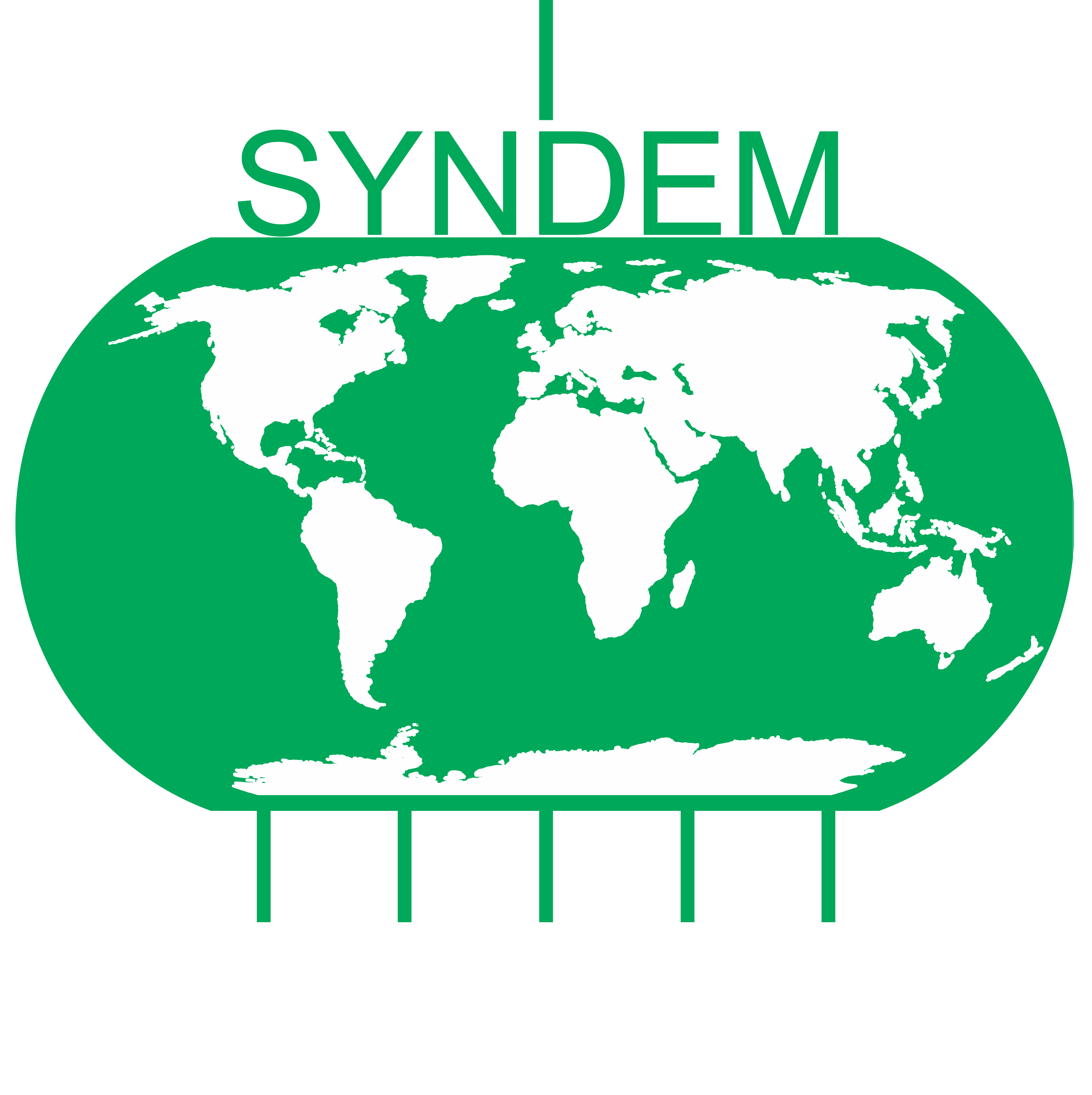 Making power systems worldwide stable,
reliable, secure, and
sustainable.
Making power systems worldwide stable,
reliable, secure, and
sustainable. 
